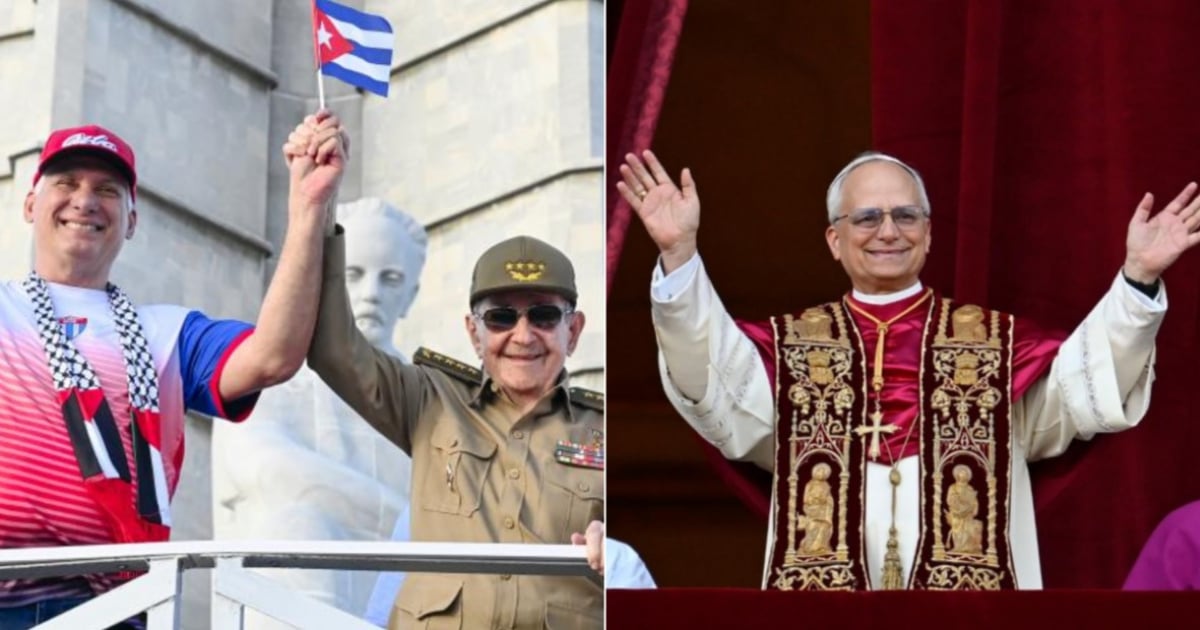The head of Cuba's Communist Party, Raúl Castro, alongside the nation's leader, Miguel Díaz-Canel, have extended their congratulations to the newly elected Pope Leo XIV, who was chosen as the Supreme Pontiff of the Catholic Church this Thursday. They emphasized their hope for advancing peace, dialogue, and strengthening ties with the Holy See.
In a formal statement released on Friday by the Ministry of Foreign Affairs (MINREX), Raúl Castro addressed the new Pope with diplomatic courtesy, underscoring the Papacy's role in global stability:
"Your Holiness: I offer my heartfelt congratulations on your election as Supreme Pontiff. I trust that your Pontificate will make a vital contribution to peace and dialogue. Cuba is committed to enhancing its positive relations with the Holy See. Please accept the expression of my highest regard and esteem," concluded the message signed by Castro.
Meanwhile, Díaz-Canel, who is currently on an official visit to Russia, conveyed his message via his account on X (formerly Twitter), where he also expressed support for dialogue with the Church:
"We congratulate His Holiness Pope Leo XIV on his recent election. We share the commitment to fostering dialogue and peace. We will continue working to reinforce the relationship between #Cuba and the Holy See, which marks its 90th anniversary this year," he tweeted.
The Historical Bond Between Cuba and the Holy See
The selection of Leo XIV opens a new chapter in the Vatican-Cuba relationship, which has been punctuated by pivotal events since the late 20th century.
Saint John Paul II was the first Pope to visit the island, from January 21 to 25, 1998. His landmark visit included a meeting with Fidel Castro and a message that resonated deeply: "Let Cuba open itself to the world, and let the world open itself to Cuba." This moment was a turning point in the connections between the Catholic Church and the Cuban regime.
In March 2012, then-Pope Benedict XVI visited Cuba, meeting with Raúl Castro and an already retired Fidel Castro. During his visit, he held massive masses in Santiago de Cuba and Havana, advocating for a more open society, albeit in diplomatic terms.
September 2015 saw Pope Francis visiting Cuba as part of a tour that also included the United States. During his stay, he had a private meeting with Fidel Castro at his residence when the dictator was gravely ill and had long withdrawn from public life. The Vatican described this encounter as "cordial and familial."
The Cuban authorities' message to Pope Leo XIV comes amidst a profound political, economic, and social crisis on the island, with increasing reports of human rights violations and repression. Despite this, Havana seeks to maintain an image of continuity in its relations with the Vatican, as this year marks 90 years of bilateral relations with Cuba.
Frequently Asked Questions about Cuba-Vatican Relations
What is the significance of Pope Leo XIV's election for Cuba?
The election of Pope Leo XIV is significant for Cuba as it represents an opportunity to strengthen diplomatic relations with the Holy See and promote peace and dialogue during a time of political and social challenges on the island.
How has the Vatican historically influenced Cuba?
Historically, the Vatican has played a crucial role in promoting dialogue and openness in Cuba. Notable Papal visits, such as those by Saint John Paul II and Pope Francis, have marked key moments in encouraging greater engagement between Cuba and the international community.
